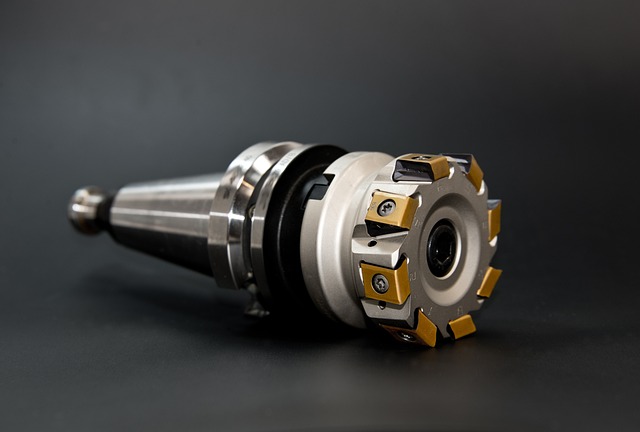Welding Training Opportunities in Sweden
For individuals residing in Sweden, welding training presents a pathway to exciting career prospects. No prior experience or specialized education is required to embark on this journey in a dynamic sector. With a focus on welding and metal fabrication, training can lead to employment in various fabrication companies.

Comprehensive Welding Education Programs in Sweden
Sweden’s educational system places significant value on vocational training, with welding education available through multiple channels. The country’s upper secondary schools (gymnasieskolor) offer vocational programs in industrial technology that include welding components. These three-year programs combine theoretical knowledge with hands-on practice, giving students a solid foundation in welding principles and techniques. For adults seeking career changes or skills enhancement, municipal adult education centers (Komvux) provide welding courses designed to accommodate working schedules while delivering practical training in various welding methods including MIG, TIG, and stick welding.
Higher education institutions like KTH Royal Institute of Technology and Chalmers University of Technology offer specialized engineering programs that include advanced welding and metallurgy coursework. These programs prepare graduates for technical leadership roles in manufacturing, shipbuilding, and construction industries where welding expertise is essential.
An Overview of Welding Fabrication Training Standards
Sweden maintains high standards for welding certification and training, aligned with both European and international requirements. The Swedish Welding Commission (Svetskommissionen) plays a central role in establishing and maintaining these standards, ensuring that welding training programs meet the quality benchmarks required by industry. Most welding programs in Sweden follow the International Institute of Welding (IIW) guidelines, providing certifications that are recognized globally.
Training typically covers essential aspects of welding fabrication including material selection, joint design, weld preparation, and quality control techniques. Students learn to interpret technical drawings, understand welding symbols, and apply appropriate welding procedures for different materials and applications. Safety training is particularly emphasized, with comprehensive instruction on hazard identification, personal protective equipment usage, and workplace safety protocols specific to welding environments.
Industry Partnerships Enhancing Training Quality
A distinctive feature of Sweden’s welding training landscape is the close collaboration between educational institutions and industry partners. Companies like Volvo, SSAB, and Sandvik actively participate in curriculum development and often provide equipment, materials, and experienced instructors to training programs. This industry involvement ensures that welding education remains current with technological advancements and aligned with actual workplace requirements.
Many programs incorporate workplace-based learning components where students spend time in industrial settings, gaining practical experience under the guidance of experienced welders. These arrangements frequently lead to employment opportunities, as companies can identify promising talent during the training period. Industry partnerships also facilitate specialized training in areas like underwater welding, pressure vessel fabrication, or specialized alloy welding techniques that require specific expertise.
Pathways to Success with Metal Fabrication Skills
The career trajectory for welders in Sweden typically begins with basic certification, followed by progressive specialization and advancement. Entry-level welders often start in manufacturing or construction, building experience with fundamental welding processes. As they develop specialized skills, opportunities expand into shipbuilding, aerospace, automotive manufacturing, and energy sectors, all of which maintain a significant presence in Sweden’s industrial landscape.
Many welders pursue additional certifications in specialized techniques like pipe welding, aluminum welding, or high-pressure applications, which can substantially increase earning potential and career opportunities. Advanced training can also lead to positions as welding inspectors, quality control technicians, or welding engineers. Entrepreneurial welders may establish their own shops or specialized fabrication businesses, especially in regions with strong manufacturing bases like Gothenburg, Stockholm, and Malmö.
Technological Advancements in Welding Training
Swedish welding training programs have embraced technological innovation, incorporating advanced simulation systems and automated welding equipment into their curricula. Virtual reality welding simulators allow students to practice techniques in a safe, controlled environment before working with actual materials and equipment. These systems provide immediate feedback on weld quality and technique, accelerating skill development while reducing material waste and safety risks.
Training now routinely includes instruction on robotic welding systems, programming interfaces, and automated quality control systems, reflecting the increasing automation in Swedish manufacturing. This forward-looking approach ensures that graduates are prepared for modern industrial environments where traditional welding skills must be complemented by technological literacy and adaptability to computerized systems.
Cost and Investment in Welding Education
Sweden’s approach to education financing makes welding training relatively accessible compared to many other countries. Upper secondary vocational programs are typically free of charge for students, while adult education programs may involve modest fees depending on the municipality and program structure. University-level welding engineering programs follow Sweden’s general higher education model, which remains tuition-free for EU citizens.
| Program Type | Duration | Approximate Cost | Additional Expenses |
|---|---|---|---|
| Upper Secondary Vocational Program | 3 years | Free (Swedish residents) | Personal tools: 3,000-6,000 SEK |
| Adult Education Welding Certificate | 6-12 months | 0-15,000 SEK | Materials: 2,000-4,000 SEK |
| Private Welding Courses | 1-6 months | 20,000-50,000 SEK | Certification fees: 3,000-5,000 SEK |
| University Engineering Programs | 3-5 years | Free (EU citizens) | Living expenses: 8,000-10,000 SEK/month |
Prices, rates, or cost estimates mentioned in this article are based on the latest available information but may change over time. Independent research is advised before making financial decisions.
Future Prospects in Swedish Welding Industries
The outlook for welding professionals in Sweden remains positive, driven by continued demand across manufacturing, construction, and emerging green technology sectors. As Sweden pursues climate goals and industrial transformation, new opportunities are emerging in areas like wind turbine fabrication, hydrogen technology infrastructure, and electric vehicle production—all of which require specialized welding expertise. Additionally, an aging workforce in traditional industries is creating succession gaps that new welders can fill.
Sweden’s strong focus on innovation and sustainable manufacturing positions welding professionals at the intersection of traditional craftsmanship and technological advancement. For those willing to continuously update their skills and adapt to changing industry requirements, welding offers a stable and potentially lucrative career path in Sweden’s dynamic industrial landscape.




